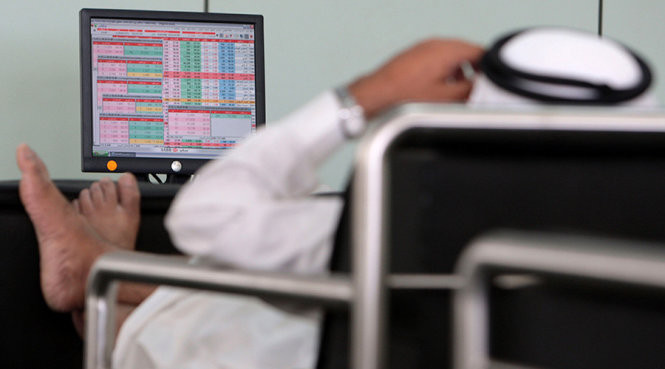Saudi Arabian civil servants work only 1 hour a day
That is shocking information from senior Saudi Arabian officials about the actual work efficiency of many civil servants in this country.
 |
| Many Saudi Arabian civil servants actually work only one hour a day - Photo: Reuters |
According to RT (Russia), at an official discussion on the current state of the Saudi Arabian economy broadcast in prime time on the evening of October 19, Saudi Arabian Minister Khaled Alaraj said: "The effective working time of state employees is not even more than one hour, that is based on research."
Senior Saudi Arabian officials say that at this rate, Saudi Arabia will go bankrupt in just three or four years.
The problem is particularly acute in Saudi Arabia, whose economy is reeling from the fall in oil prices and which is struggling to cut a budget deficit of $100 billion last year.
More than two-thirds of workers in Saudi Arabia work in government agencies, compared with nearly 20% in the United States.
Last year, Saudi Arabia spent about 45% of its budget, or $128 billion, on civil servant salaries.
Before recent reforms, even the most modest Saudi civil servant enjoyed generous benefits, working just 35 hours a week, with regular bonuses.
But with economic growth estimated at just 1.2% this year and oil prices still hovering around $50 a barrel, Saudi Arabia faces many challenges.
"If we don't take any measures, and if the global economy remains the same as it is now, we will go bankrupt in three or four years," said Deputy Economy Minister Mohamed Al Tuwaijri.
The Saudi Arabian government has recently announced a series of unprecedented cost-cutting measures, some systematic, some haphazard.
Along with measures such as introducing a business tax for the first time, charging a pilgrimage visa fee of about $530 per person, reducing subsidies on some types of energy, and imposing heavier road taxes, the government has also tried to cut spending in the public administration sector.
Last month, senior officials had their salaries cut by 20% and had to pay their own gas and personal phone bills, while staff lost 11 days' pay as the government switched from the Islamic calendar to the Western calendar.
Civil servants who fail to perform their duties can now be fired after three years, a revolution in Saudi Arabia where so many jobs are essentially dead weight.
In many government agencies in the Gulf state, employees are now required to swipe their badges multiple times a day to prove their presence at work.
At the same time, the government is also trying to create more reforms to make the private economic sector more flexible and attractive to workers, such as a 6-day work week and reducing working hours from 48 hours to 40 hours/week.
Overall, with all the measures already in place, the Saudi government hopes to create 450,000 additional jobs in the private sector by 2020.
According to Tuoi Tre
| RELATED NEWS |
|---|








